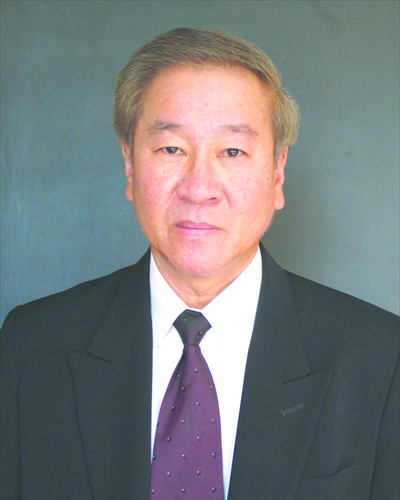Thailand looks to China to speed up rails

Editor's Note:
Chalongphob Sussangkarn (Sussangkarn) is a former president of and now distinguished fellow at the Thailand Development Research Institute. He also served as Thai minister of finance. Thailand has recently announced a $68 billion plan to upgrade transportation and build a high-speed rail network. Are the times ripe for such projects? Can Thailand draw lessons from China's experience? Global Times (GT) reporter Liu Zhun quizzed him on these issues.
GT: Why is Thailand taking the lead in this area?
Sussangkarn: I am not sure if Thailand is the first country in Southeast Asia that plans to build high-speed rail. Other Southeast Asian countries, like Singapore and Malaysia, are also talking about high-speed rail.
In the case of Thailand, since the Asian financial crisis hit the country dramatically in 1997, the ratio of investment in GDP has declined substantially from 40-45 percent to 20-25 percent. The Thai economy is imbalanced now, as it relies too much on exports.
That is part of the reason why the government has to carry out large-scale investments such as the high-speed railway plan, which will take place over the next seven years.
Apart from high-speed trains, there will also be investment in mass transit around Bangkok and upgrading of Thailand's regular rail network which is very old and outdated. The average speed of trains is only 60 kilometers per hour.
So the idea of trying to revitalize the rail sector and introducing new technology is to make the railway play a bigger role in the Thai economy.
GT: The Thai government intends to call for bids in the high-speed railway project, and China, Japan, France, Germany and South Korea have showed their interest. What's the standard for choosing a partner?
Sussangkarn: The most important thing for the Thai government is to be transparent, because the investment covers a lot of money, and the people are carefully monitoring and suspicious of whether there might be any kind of corruption.
It's very important that whoever the government selects, the choice has to be transparent.
I know there will be competitions among these different countries. But another aspect, which I think the Thai government needs to stress, is that Thailand has to increase its capability to produce products that will be used in the rail sector.
At present, Thailand has to import almost everything. So if Thailand wants to modernize the rail system but has to import everything, the benefit to Thailand will be low.
Because Thailand still has to continue importing facilities in the future, one of the important criteria should be that whoever invests in the rail network also needs to increase the local content of that investment as well.
Thailand has a relatively weak rail sector, so it requires the partner to produce some of the parts or components that can go into the system within Thailand.
If the government does not put the requirements in, then Thailand will continue to remain almost totally import-dependent in the future.
GT: China's high-speed rail development has had significant financial and safety problems. Will Thailand draw lessons from this?
Sussangkarn: Other countries are keeping China's lessons in mind. As for Thailand, some problems are even more difficult to be addressed.
For example, when a large project is going to be implemented and land expropriation needs to be carried out where many residents have been living for generations, these people would go to the courts.
So it is unlikely that the high-speed railway project will go smoothly according to the plan, and it will never be the case it runs entirely smoothly. There will be protests and fights, and people want to get more compensation. The government has to pay a much fairer price so the people could accept it more easily.
Thailand and China have a very good relationship, and it has become much stronger in the last decade.
There are many common interests between both countries, especially in the railway development, which has gone beyond the railway within Thailand. The development of railways has connected the two neighboring countries more closely.
China is always trying to develop the inner provinces, especially the provinces in Southwest China, because they lag far behind the coastal areas.
However, since they are too far away from the sea, the logistical costs will be too high to locate any factories in the regions.
But if they go south by rail to Thailand, the logistical costs will be lowered substantially. This will make the products and services in Yunnan and other nearby provinces more accessible to the international market.
That is why there has been a discussion, lasting for several years, on developing a railway from Kunming to Vientiane, which will connect the existing railway from Vientiane to Bangkok so that freight and people can travel straight down from Kunming to Bangkok area.
What's more, thanks to the railway, the border areas in Thailand along the railway will also prosper. It will be a win-win situation for both China and Thailand.